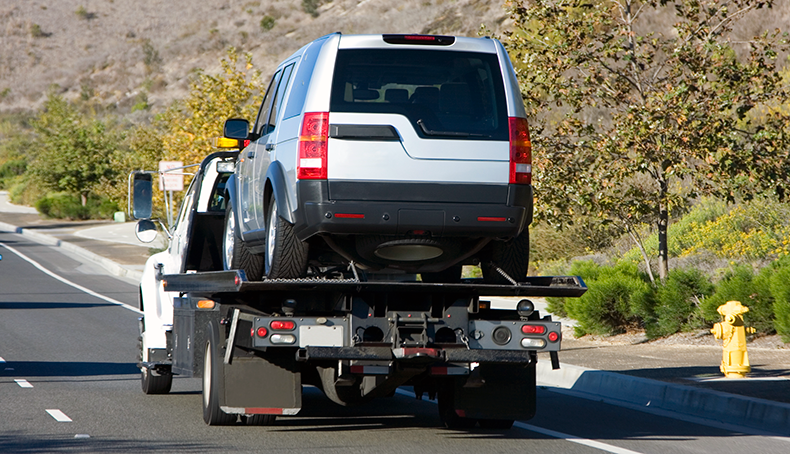Are you planning a cross-country move and wondering how to save money on shipping your vehicle? Look no further! We understand that cross-country car shipping costs can be a significant concern, but fear not, as we’re here with valuable tips and strategies to help keep your hard-earned dollars in your pocket.
In this guide, we will explore the factors that influence car shipping costs and provide actionable advice on minimizing expenses without compromising the safety and reliability of your vehicle’s transportation. Whether you’re relocating for a new job, starting a fresh chapter in a different state, or simply seeking adventure on the open road, our goal is to equip you with the knowledge you need to make informed decisions and save money in the process.
Factors that Influence Car Shipping Costs
When it comes to cross-country car shipping, several factors come into play that can significantly impact overall car shipping costs. Understanding these factors will help you make informed decisions and save money in the process.
Here are the main factors that influence car shipping costs:
Distance: The distance between the pickup and delivery locations is a crucial determinant of car shipping costs. Generally, the longer the distance, the higher the car shipping costs. This is primarily due to the fuel expenses, driver wages, and time required to transport the vehicle across vast distances.
Seasonality: The time of year can affect car shipping costs. Demand for car shipping services tends to increase during peak moving seasons, such as summer, when families often relocate and students move for college. Increased demand can lead to higher prices. Conversely, booking during off-peak seasons or avoiding major holidays can result in affordable car shipping rates.
Type of Vehicle: The size, weight, and specific requirements of your vehicle can influence car shipping costs. Larger and heavier vehicles, such as trucks or SUVs, may incur higher fees due to their impact on the carrier’s capacity and fuel consumption. Additionally, if your car has modifications or special handling needs, it may require specialized equipment or additional services, increasing car shipping costs.
Tips for Saving Money on Car Shipping Costs
Now that we’ve explored the factors affecting car shipping costs let’s delve into actionable tips to help you save money on your cross-country car shipping adventure. By implementing these strategies, you can save money on car shipping without compromising the safety and reliability of your vehicle’s transportation.
Here are some practical tips:
- Plan Ahead
- Choose an Open Carrier
- Compare Quotes
- Opt for Terminal-to-Terminal Shipping
- Prepare Your Vehicle for Shipping
- Research and Compare Car Shipping Companies
- Find the Best Option for Your Needs
Preparing Your Car for Transport
Preparing your car for transport is crucial to ensure its safe journey across the country. By following this checklist of steps, you can minimize the risk of damage and ensure a smooth shipping process:
- Clean the Car
- Document the Car’s Condition
- Perform a Vehicle Inspection
- Remove Personal Items
- Secure or Remove Exterior Items
- Turn Off Security Systems
- Fuel Level and Battery
- Spare Key and Documentation
Types of Car Carriers and Shipping Methods
When shipping your car across the country, you have two main options for car carriers: enclosed and open transport. Understanding the differences, pros, and cons of each method can help you make an informed decision based on your vehicle’s specific needs.
Enclosed Car Carriers:
Enclosed carriers provide a fully enclosed and protected environment for your vehicle during transportation.
Pros:
- Maximum Protection: Enclosed carriers shield your car from the elements, road debris, dust, and potential damage.
- Enhanced Security: The enclosed nature of these carriers offers increased security and reduces the risk of theft or vandalism.
- Reduced Risk of Damage: The enclosed environment minimizes exposure to external elements, reducing the likelihood of scratches, dings, or other damages.
- Customized and High-Value Vehicle Friendly: Enclosed carriers are ideal for transporting classic and luxury cars and customized or high-value vehicles that require extra care and attention.
Cons:
- Higher Cost: Enclosed carriers typically come at a higher cost than open carriers due to the added protection and security they offer.
Open Car Carriers:
Open carriers are the more common and cost-effective option for transporting vehicles.
Pros:
- Cost-Effective: Open carriers are generally more affordable than enclosed carriers, making them a popular choice for many car owners.
- Widespread Availability: Open carriers are more readily available due to their higher numbers in the transportation industry.
- Larger Capacity: Open carriers can accommodate multiple vehicles simultaneously, reducing costs and transit times.
Cons:
- Exposure to Elements: Open carriers expose your vehicle to potential weather conditions, road debris, and dust during transportation.
- Limited Protection: While some open carriers may have partial protection, they do not provide the same security and protection as enclosed carriers.
- Increased Risk of Damage: Due to exposure, there is a slightly higher risk of cosmetic damages, such as scratches or chips, although reputable carriers take precautions to minimize these risks.
- Not Ideal for Highly Valuable or Delicate Cars: Open carriers are generally not recommended for transporting high-value or delicate classic and luxury cars that require maximum protection.

Suitability for Classic and Luxury Cars
Enclosed carriers are typically preferred for classic and luxury cars due to their higher value, sensitivity, and the need for utmost protection. Classic and luxury cars often have unique or delicate features that require specialized handling and protection during transportation.
While open carriers are generally safe for most vehicles, enclosed carriers provide an extra layer of security and protection better suited for classic and luxury cars.
Ensuring Safe Transportation
Professional car shipping companies take various measures to ensure the safe transportation of vehicles. These measures are designed to minimize the risk of damage, theft, and delays. Here are some of the steps taken by reputable car shipping companies:
- Experienced and Trained Drivers
- Secure Loading and Unloading
- Properly Maintained Fleet
- Insurance Coverage
- Secure Storage Facilities
- Real-Time Tracking and Communication
- Transparent and Clear Communication
Addressing Concerns
Potential Damage: While professional car shipping companies take precautions to minimize the risk of damage, it’s essential to thoroughly inspect your vehicle before shipping, document its condition, and communicate any existing damages to the carrier. Proper insurance coverage also provides added protection in case of unforeseen damage.
Theft: Reputable car shipping companies prioritize security and implement measures to prevent theft. These can include secure storage facilities, background checks on drivers and staff, and tracking systems to monitor the vehicle’s location. Choosing a trusted and well-established company with a proven track record is critical.
Delays: Despite careful planning, unforeseen circumstances can cause delays in transportation. Weather conditions, traffic, or logistical issues may contribute to delays. Maintaining clear communication with the shipping company and regularly checking for updates on your vehicle’s status can help you stay informed about potential delays.
Tips for Staying Updated on Car’s Location
Utilize Tracking Services: Stay in the loop throughout the shipping process with uShip’s mobile tracking feature. Easily monitor your shipment’s progress or communicate directly with your carrier.
Regular Communication: Stay in touch with the car shipping company’s customer service department. They can provide updates on the status of your shipment and address any concerns or questions you may have.
Plan Ahead: Understand the estimated transit time the shipping company provides and plan accordingly. This allows you to have realistic expectations and be prepared for unforeseen delays.
Maintain Contact Information: Ensure that the car shipping company has your accurate contact information, including phone number and email address. This ensures they can easily reach you with any updates or changes to the transportation schedule.
By choosing a professional car shipping company or carrier, you can know that your classic or luxury car is in safe hands throughout the shipping process.
Car Shipping Costs: Factors and Getting Quotes
The cost of shipping a classic or luxury car can vary based on several factors. Understanding these factors can help you estimate and evaluate the pricing different shipping companies provide. Here are the key factors that influence car shipping costs:
Distance: The distance between the origin and destination plays a significant role in determining the cost. Longer distances generally result in higher shipping costs.
Vehicle Size and Weight: The size and weight of your classic or luxury car impact the cost. Larger and heavier vehicles may require more resources and specialized equipment, which can increase the shipping price.
Shipping Method: The choice between enclosed and open carriers affects the cost. Enclosed carriers, offering higher protection, typically come at a higher price than available carriers.
Vehicle Condition: The condition of your vehicle can affect car shipping costs. Non-operational vehicles or those requiring special handling may incur additional fees.
Season and Demand: Car shipping costs may vary depending on the season and demand. Peak seasons, holidays, or busy routes can increase prices due to increased demand for car transport services.
Additional Services: Additional services you request, such as expedited shipping, door-to-door delivery, or storage, may incur additional charges.
Additional Services and Special Considerations
Car shipping companies go the extra mile to meet the specific needs of classic or luxury car owners by offering additional services and special considerations. These services aim to enhance the transportation experience while providing added convenience and protection. Common additional services provided by car shipping companies include upgrades for enclosed trailers. These upgrades, such as lift gates, climate-controlled environments, or soft tie-downs, offer increased protection and minimize potential transit risks. If you have a strict time frame for delivery, expedited shipping services are available to prioritize your vehicle’s transportation and ensure faster delivery.
For added convenience, many car shipping companies offer door-to-door delivery. Instead of having to drop off or pick up your vehicle at a terminal, the company collects and delivers it directly to your specified addresses, saving you time and effort. Secure storage facilities can be arranged if you require temporary storage for your classic or luxury car. This proves helpful if your availability or new location readiness doesn’t align with the delivery dates.
When it comes to vintage, high-value, or customized vehicles, experienced car shipping companies take special consideration. They have expertise in handling and loading these unique vehicles, ensuring their safe transportation during loading and unloading. Additional security measures such as GPS tracking systems, alarm systems, or 24/7 monitoring may be employed to protect valuable or customized vehicles throughout the journey. Specialized equipment like air-ride suspension trailers or soft tie-downs may also be utilized to minimize vibrations and ensure a smooth and secure transport tailored to the specific requirements of your vehicle.
International car shipping
Many car shipping companies offer international shipping services if you’re looking to transport your classic or luxury car abroad. These services involve additional considerations, such as customs clearance, documentation, and import/export regulations compliance. Car shipping companies with expertise in international shipping can handle these processes efficiently, ensuring a smooth transition across borders.
When opting for international car shipping, it’s essential to work with a company that has experience in the specific destination country, understands the legal requirements, and can provide necessary guidance and support throughout the process.
Remember that international car shipping may involve longer transit times due to distance, customs procedures, and logistical arrangements. It’s recommended to discuss the specifics with the car shipping company to ensure a hassle-free international shipping experience for your classic or luxury car.
Conclusion
In conclusion, you can save money without compromising quality by implementing these tips for saving money on car shipping. Researching and comparing quotes from multiple car shipping companies, considering alternative pickup and delivery locations, being flexible with your schedule, and preparing your vehicle will help you find cost-effective options. Additionally, understanding the different shipping methods and their associated costs can empower you to make an informed decision. With these strategies in mind, you can save money while ensuring your car is safely transported to its destination.
Call on uShip for the lowest prices on car shipping!
FAQs for Shipping a Car Across the Country
How much does it cost to ship a car across the country?
The cross-country car shipping costs vary depending on factors like distance, vehicle type, shipping method, and additional services. On average, it can range from $500 to $1,500.
How long does it take to ship a car across the country?
The time it takes to ship a car across the country depends on the distance and the specific shipping route. Generally, it can take anywhere from a few days to a few weeks.
Is it cheaper to ship a car by train or truck?
The cost of shipping a car by train or truck depends on various factors. Generally, shipping by truck is more common and often more flexible regarding scheduling. However, shipping by train may be cheaper for certain routes or bulk shipments.
Can I pack personal items in my car during shipping?
Many car shipping companies allow you to pack personal items in your car during shipping. However, it’s essential to check with the specific company as there are usually restrictions on the weight and type of items allowed. It’s also recommended to remove valuable or fragile items.
How do I prepare my car for shipping?
To prepare your car for shipping, you should:
- Wash the car thoroughly
- Remove all personal belongings and valuables
- Document any existing damage with photographs
- Check and maintain proper tire pressure
- Ensure the fuel tank is no more than a quarter full
- Turn off any alarm systems
What is the difference between open and enclosed car transport?
Open car transport involves shipping a vehicle on an open trailer, exposing it to the elements but offering a more affordable option. Enclosed car transport involves shipping a vehicle in an enclosed trailer, providing protection from weather conditions and offering higher security. Enclosed transport is generally more expensive.
How do I choose a reliable car shipping company?
When choosing a car shipping company, consider the following:
- Research and read reviews from multiple sources
- Verify their licenses and insurance coverage
- Inquire about their experience and track record
- Request a detailed quote with transparent terms and conditions
- Ask about their shipping methods and delivery options
What insurance options are available for car shipping?
Car shipping companies typically offer basic insurance coverage as part of their services. You can also inquire about additional insurance options for extra protection during transit. It’s important to carefully review the insurance coverage and any limitations before shipping your car.
What happens if my car is damaged during shipping?
In the event that your car is damaged during shipping, you should immediately notify the shipping company. Most reputable companies have insurance coverage to address such situations. Document the damage with photographs and file a claim with the shipping company immediately.
How do I track my car during shipping?
Many car shipping companies provide tracking services that allow you to monitor the progress of your vehicle. You can also stay informed throughout the shipping process with uShip’s mobile tracking feature. Easily monitor your shipment’s progress and receive real-time updates on its location and estimated arrival time.




